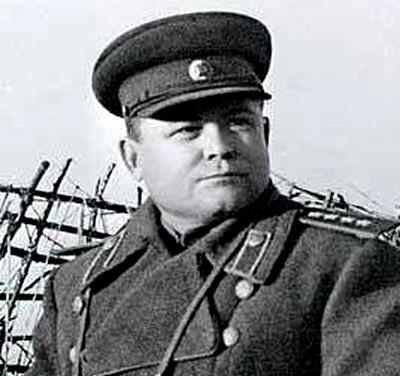During World War II, "blitzkrieg" was synonymous with German offense, and armored tactics and blitzkrieg tactics were brought to the extreme.
In fact, the Soviet army also had a famous general known as the "Lightning General", known for commanding large-scale tank battles, that is, Nikolai Fyodorovich Vatutin.

At the beginning of the Great Patriotic War, the Soviet Union was caught off guard by the Germans due to its lack of war preparations and the fact that a large number of excellent generals were purged in the previous civil unrest. The Northwest Front, an important main force of the Soviet Red Army, was even more unable to collapse and almost suffered from "Germanophobia."
The lifeless Soviet army urgently needed a group of excellent generals to regroup and inspire people, which gave birth to the famous Soviet generals Zhukov, Vatutin and so on as we know it today. It is worth mentioning that at the age of 41, Vatutin became the chief of staff of the Northwest Front, becoming the youngest and most promising new star in the Soviet army.
As we all know, Manstein, known as the "Armored Monster", was one of Hitler's three aces and defeated countless Allied generals, but did you know? Such a legendary general was defeated by Vatutin's men one after another!
The first battle between the two took place in the Battle of Novgorod. Facing the once-vulnerable Soviet Northwestern Front, Manstein thought it was another complete abuse, but this time he ran into Vatutin, who was not afraid of tigers. Vatutin changed the normal state of the Soviet army's stubborn position and instead launched a charge against the German Panzer Corps, resulting in heavy losses for the germans who were confused.
Shortly after the battle, the two met again at the Battle of Stalingrad in 1942. This time, however, their purpose and mission were different. Because the German marshal Paulus was surrounded by Soviet troops at the time, Manstein's task was to assist him in the breakthrough, while Vatutin was ordered to besiege him to death.
As a result, under Vatutin's "Little Saturn" offensive, the Germans, who had suffered heavy losses on the flanks, had to retreat, Manstein lost to Vatutin again, and Paulus became the first German marshal to be captured during World War II. Thanks to this, Vatutin was promoted to Soviet general.
The following year, Hitler, unwilling to accept defeat, made a comeback and sent heavy troops to attack Kursk. Coincidentally, the commander of the defense of Kursk was Vatutin, and the German commander was Manstein.
Just as the so-called enemy road is narrow, the two people who are holding a strong heart have staged a tank battle on an unprecedented scale in the history of human warfare!
In this battle, the Soviets and Germans sent a total of 13,000 tanks, 12,000 aircraft, and 69,000 artillery pieces, which ended in a complete victory over Vatutin and the complete loss of the German army's ability to attack strategically.
With the impressive battle against Manstein in three battles and three victories, Vatutin successfully became the first-line command general of the Soviet Union, and even Stalin, who was always mean, praised him as "one of the best generals of the Soviet army".
At this time, Vatutin's future was almost visible to the naked eye, and it was a foregone conclusion to be promoted to marshal and become a Soviet meritorious service, but in 1944, fate played a joke on him.
On February 29, 1944, on the way to the troop inspection with the convoy, Vatutin was attacked by a Ukrainian guerrilla, you know, Ukraine is also part of the Soviet Union, so this is equivalent to fighting with his own people!
More unfortunately, when Vatutin got out of the car to check the situation, he was hit by a stray bullet and was seriously injured. After more than a month of rescue, Vatutin was unable to rescue him and eventually died on April 15, 1944, at the age of 43.
This "first fierce general of the Soviet Union", who single-handedly crushed hundreds of thousands of German armored troops, died at the hands of a group of guerrillas, and what is even more ironic is that these guerrillas are still their own! It can only be said that this is fate!
After his sacrifice, Vatutin was buried in Kiev, the capital of Ukraine, a city he had liberated.
At his funeral, Stalin specially instructed the Moscow Artillery Regiment to fire a cannon to mourn, and the funeral was presided over by Khrushchev himself, which showed Vatutin's extraordinary status.